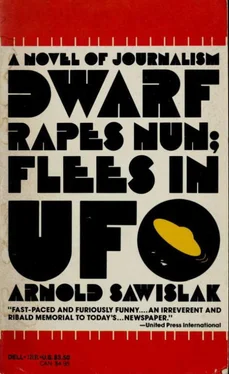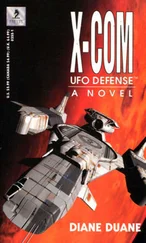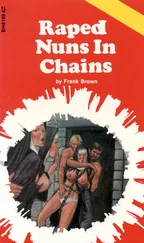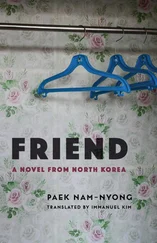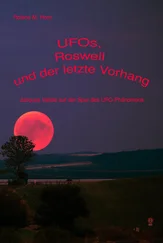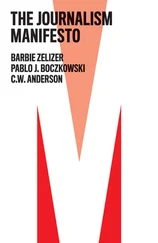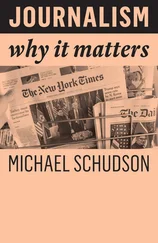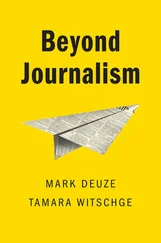“Clowns?” I asked after sitting down again.
“That’s the Baraboo connection,” Diana said. “That’s where the Ringling Brothers started out in Wisconsin. It’s their shtick—they have a whole album of circus songs. Wait till they play ‘Do It to Me on the Flying Trapeze.’”
I shook my head which made it hurt even more. “Boy, I sure must have missed -something.”
Liz smiled. “Just the last ten years.”
It took a full forty minutes for Baraboo to run through its repertoire and exhaust itself. After the last rivet-popping, metal-fatiguing number ended, the band made its way down the back stairs, makeup streaked with sweat, and the members stretched out on the grass behind the stage. The audience on the field in front was humming and buzzing like a power station with an occasional shriek of joy or pain—hard to tell which—cutting through the undertone.
“Post Partum’s up next,” Liz said. “You’ll like them better. I’ve heard them even do some oldies and goldies.”
“Listen, I’m going to try the stage for some level shots.”
She left, but was back in a few minutes. “Got all the way up to the top of the steps, but the old man up there wouldn’t let me on the stage.”
“Tall guy with a fringe of white hair?” I asked. Liz nodded.
“That sounds like Turg. I met him once at a Senate Agriculture Committee hearing. He was trying to get a state tax depreciation allowance on commercial turf. Maybe I can talk him into letting you up.”
We climbed the stairs and I got lucky. Turg remembered me.
“Sure, I ’member you from the Capitol. You’re the only one who even asked me to explain what kind problems a turf farmer got. Did a fair story too, I recollect. Of course, them crooks over there wouldn’t pass my bill.
“What the hell you doin’ out here in this madhouse? My God, if Momma had lived to see what the home place she and Paw worked over had come to, she’d die. Trampling the grass, throwing beer cans all over… shit, I even find girls’ underwear out there next day,” he said, waving at the crowd.
Turg was willing to let me and Liz on the stage, but warned us to stay out of sight behind the huge sound amplifiers.
“Band won’t stand for anybody on the stage when they come on. I guess they won’t care though if she takes a couple pitchers once they get started. But then you both go back down, hear?”
We stationed ourselves behind the equipment and after five minutes the four male members of Post Partum Repression, dressed in denim pants and shiny red shirts piped with white, came up to the stage. They were by far the most conservatively outfitted of the groups if you discounted the effect of the safety pin each member had thrust through his left nostril.
They noodled a few minutes with their instruments and launched into their opening number, an adaptation of “Danny Boy” that probably would have united Ireland in a spontaneous outbreak of ethnic outrage.
The applause was just dying down when a high-pitched scream came from behind the stage. The band didn’t appear to notice, but Liz and I turned to see two figures scrambling up the stairs.
In the lead, bent in exertion, was a lean, light figure. As we looked down, the ringlets of blonde hair whipped about like a dust mop being shaken out a window as arms and legs pumped up the stairs. Halfway to the top, the head went back and another shriek cut through the sound of the band just starting its second number.
There was a second figure about a dozen steps behind the first. The weak light of the stage glowed dimly off a round white globe, which appeared from our vantage to be set atop a dark, soft-textured lump heaving up the stairs.
The band heard the second scream, and the players turned toward the stairway. Liz and I stepped in back of the speakers as a tall young woman reached the top step, stumbled as she reached level footing, and lurched to the front of the stage.
Sister Song was dressed in one knee-high red boot. The rest of what appeared in the full glare of the big spotlights was all Sister Song, nearly^six feet of gleaming white skin and a mop of wildly disarranged and, as then could be seen by all, bleached-blonde hair.
Behind her at the top of the stairs was her pursuer, that distinguished pillar of American journalism and exemplar of As’.an aviation, Shigetsu Shiu. His costume was only slightly more complete, consisting of a well-worn leather flight jacket, topped by a gleaming white impact plastic motorcyclist’s helmet. Red lightning bolts shot down each side of the bubble-shaped helmet, and a smoked plastic visor was pushed up above the forehead. From beneath the sheepskin fringe of the jacket, white shirt tails protruded like a ballet dancer’s tutu, and below them, Shiu was as bare-assed as the object of his chase.
It was like a freeze-frame photograph, the band members caught with their hands on their instruments and their heads pivoted toward the rear of the stage.
The crowd went dead silent as Sister Song stood wavering slightly from side to side in the crossed spotlights—her mouth working silently and her eyes swinging wildly around the stage. Next to me, I could hear Liz clicking away, but I could not blink, let alone move. Somewhere in the back of the brain where the Id keeps its files, I recall taking note, “Awfully small tits for such a big broad.”
Sister Song took a step forward and turned to face the band—her hands fluttering. The movement put her next to one of the band’s microphones and her words boomed out over the crowd.
“The little son of a bitch tried to rape me!”
Several band members started as if they had been jolted by simultaneous short circuits from their own electrified instruments. The bass player moved first, reaching down for the big fiddle case that had been lying next to him, opening it and trying to screen the singer from the audience. It reached only to the middle of her chest, and the drummer pulled off his shirt and tried to throw it over her shoulders from his perch above the band.
“No,” she shouted, again sending her voice out over the crowd. “Leave me alone. Get that little bastard!”
Attention turned to the back of the stage, where Shiu had been standing pants-less and open-mouthed.
“Get him!” the keyboardist yelled.
“Grab the sumbitch!” the guitarist shouted.
As the band members extricated themselves from their equipment, a few titters of laughter came up from the crowd. Someone shouted, “Go, Posties, go!” and someone else, “More! More!” A slow wave of applause began in the audience as the impression grew that it was being treated to a new wrinkle of punk rock showmanship.
As the band members started toward the stairs, Sister Song plopped down on the stage and began sobbing. Liz left the concealment of the speakers to bend over her, and I moved to the railing along the back of the stage.
Shiu was scuttling down the stairs pursued by three of the bandsmen. Coming up the steps were four of the clown-costumed Baraboos, followed by a Turg rent-a-cop and a broad-hatted deputy sheriff.
Shiu saw that he was cut off and climbed over the staircase railing about halfway down and onto the struts of the stage scaffolding. He shucked off the bulky jacket and began worming through the metal web of supports to get out of reach. One of the Post Partum band members tried to follow him, but lost his footing, dangling about ten feet above the ground. Another bandsman hooked his leg over the stair railing and tried to grab the flailing legs. He got kicked in the head for his pains.
The deputy backtracked down the stairs and tried to get below Shiu, but he could not get through the maze of scaffolding. Another deputy on the ground at the rear of the stage brought the beam of an eight-cell flashlight to bear on Shiu, as he hunkered down among the supports, and the little Oriental began trying to dodge the light.
Читать дальше
